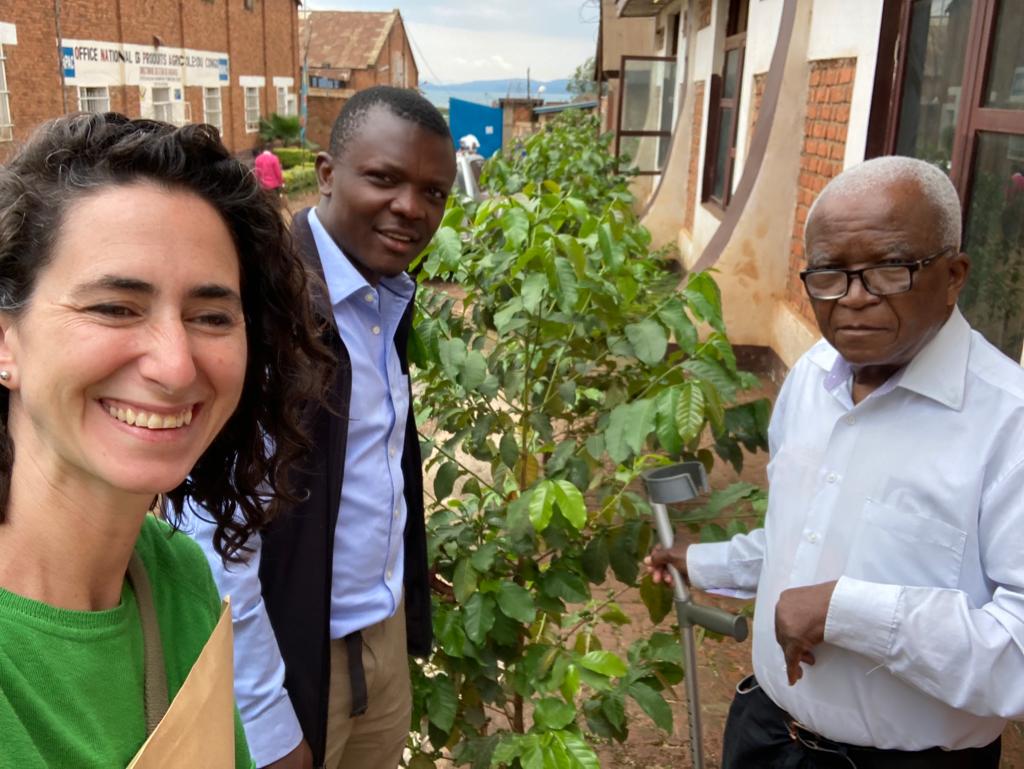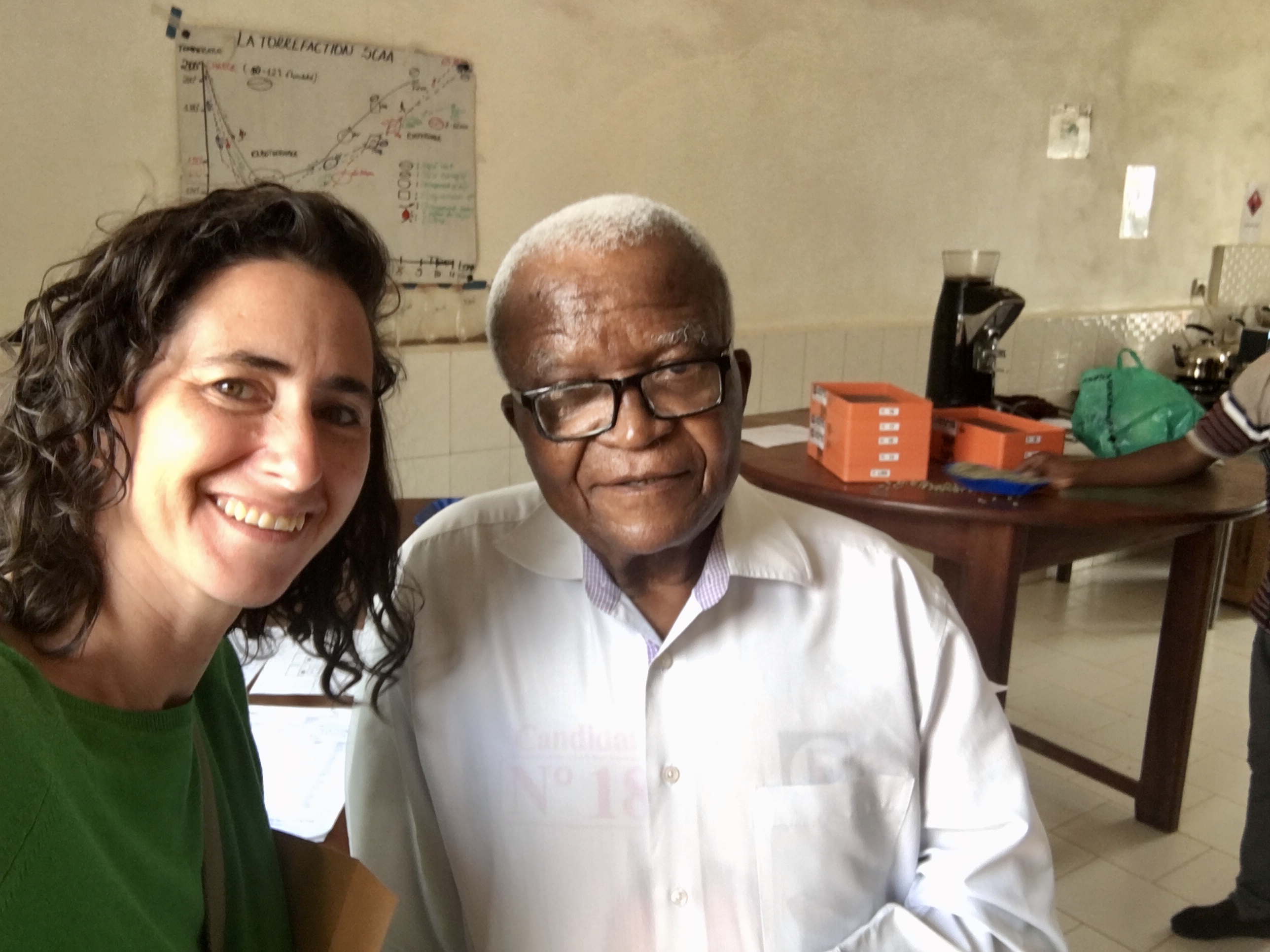We’ve learned that history and local expertise are key aspects to understanding how coffee farming and distribution works here in Congo. We recently had a visit to the South Kivu provincial office managing coffee to know more about this.
Coffee has long been produced in DRC and exported, and it’s regulation has followed its political history. For decades, Congolese coffee was controlled by Belgian colonizers. After independence, the Office National du Café (National Coffee Office) was set up in 1972 as a regulatory body for coffee production, quality control, and export.
Papa Mulyumba worked for the ONC for 40 years.
The ONC did take on different iterations in this time. Under the rule of Mobutu Sese Seko, many names in the country were changed to be more authentically Congolese, called Zairianisation, or Authenticité in French. This included changing the country’s name to Zaire. As other Francophone countries had an ONC as well, the name of the office became L’office Zairois du Café, or OZACAF. In English this translates to the Zairian Office of Coffee.
In 1996 Laurent Kabila became the president, and the name of the office was changed back to ONC.
Today this office is under a broader umbrella called ONAPAC (L’Office National des Produits Agricoles du Congo), which is the regulatory body for not only coffee but also other agricultural products of DRC, including cocoa, vanilla, tea, rubber, quinine/cinchona, ginger, spices, essential oils, and more.
ONAPAC has a provincial office for South Kivu here in Bukavu. It’s where Papa Mulyumba worked for years. We recently made a visit there with Papa Mulyumba when he had a meeting with other retirees of the organization that day.

We met the provincial director of ONAPAC, Francois Kambale, who was gracious enough to give us a tour around the facility and the coffee lab.
If there is a revival of Congolese coffee on the world stage, one can’t help but feel this office is at the epicenter of that movement.

He showed us a mill for processing green coffee, a nursery with young coffee seedlings, and a lab for sample roasting and cupping. They even have a few grown coffee trees outside the office. It’s a bustling center along the lake with canoes coming in from coffee producing areas around Lake Kivu, trucks loading and unloading. Bags of samples sit on shelves in the cupping lab, ready to be tasted and scored. The restoration of coffee production and exportation of quality coffee from South Kivu is palpable here. Growth, hope, and excitement is in the air. We hope to visit this office again for the next Saveur du Kivu coffee conference and cupping competition.